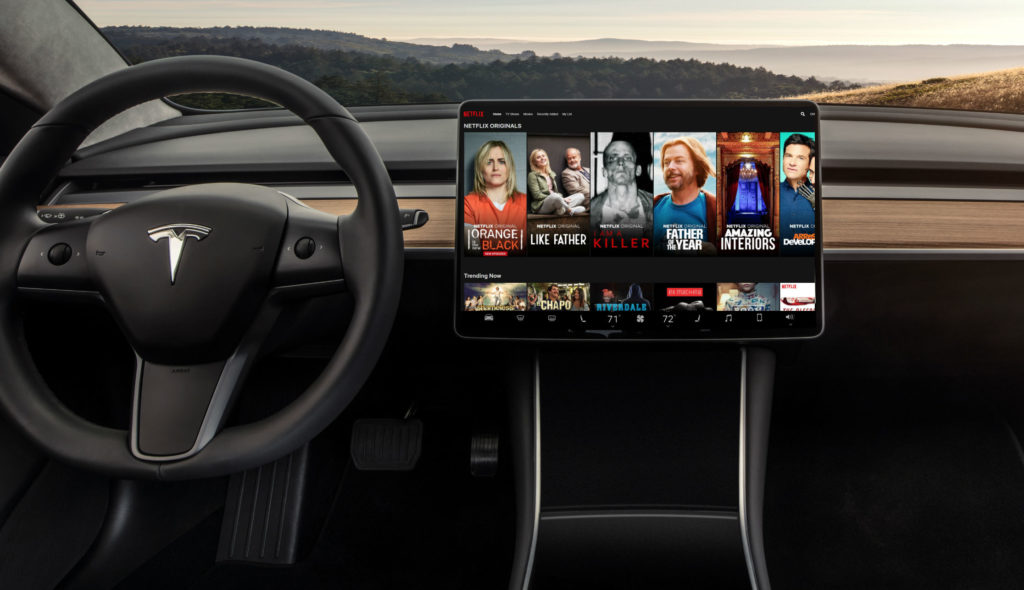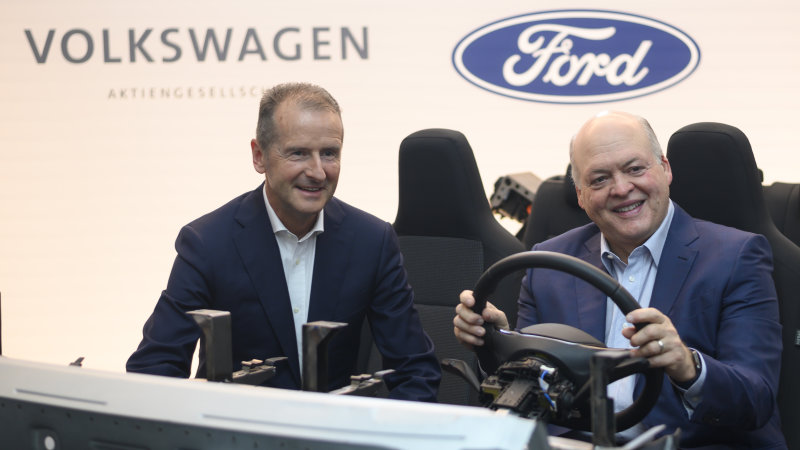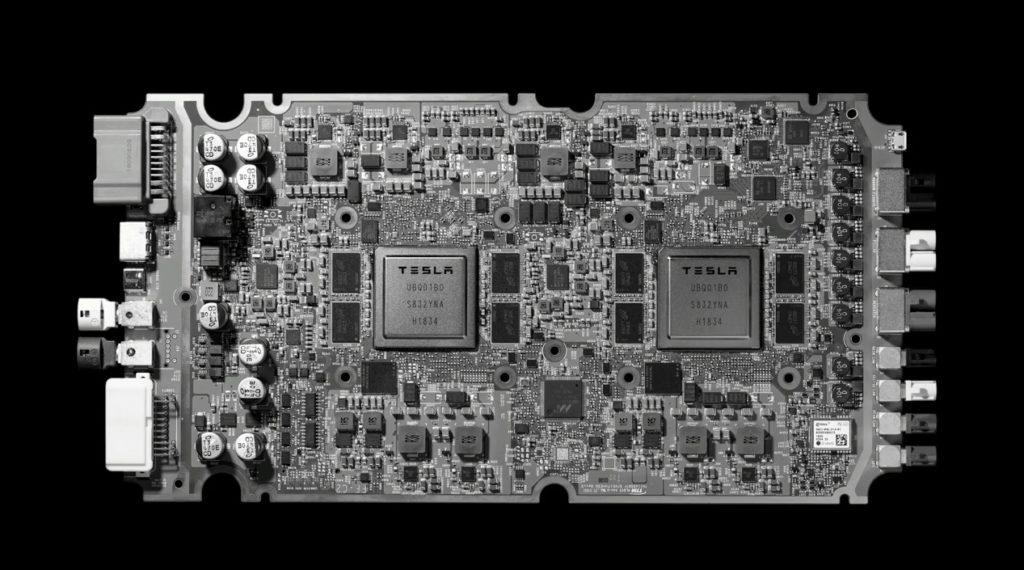US to Ban Chinese Software in Autonomous Cars: Reuters Report

I am a law graduate from NLU Lucknow. I have a flair for creative writing and hence in my free time work as a freelance content writer.

I am a law graduate from NLU Lucknow. I have a flair for creative writing and hence in my free time work as a freelance content writer.
We need to admit
that Tesla is one company with a mission to save the earth and at the
same time, is providing us with the most luxurious fleet of cars. The
cars are super comfy, luxurious and autonomous. What else can be
better than that? But in order to keep customers interested in those
automotive, the company is constantly working on improving its
services.
For the same purpose, the company announced a new software upgrade for the Tesla cars on Thursday. The company has got new features and entertainment services like in-car “Car-aoke” (karaoke), Spotify Premium, Netflix, YouTube, and Hulu, to its version 10 in-car software. The karaoke feature will offer a multi-lingual songs collection for the user. Though the entertainment features added to the Tesla software are for the drivers, these can only be accessed when the cars are parked; obviously for the safety purpose.
version 10 in-car software. The karaoke feature will offer a multi-lingual songs collection for the user. Though the entertainment features added to the Tesla software are for the drivers, these can only be accessed when the cars are parked; obviously for the safety purpose.

Another feature that the company has rolled out with the upgrade is that now the car owners can summon the car when it’s in their line-of-sight, that too, without a driver. Yes exactly like you would do to your pet. It means, if a car is parked in a parking lot, the owners will command it to come out of the parking and pick them up. According to the company, the feature will perfectly work for the ones who have purchased the fully-automatic Tesla cars.
“It’s the
perfect feature to use if you have an overflowing shopping cart, are
dealing with a fussy child, or simply don’t want to walk to your car
through the rain. Though the customers who use the feature must
remain responsible for the car and monitor it, and its surroundings,
at all times,” stated Tesla in a blog post.
The feature is
already out for the Tesla Model S, Model X, and Model 3 owners. The
ones who have got the fully autonomous self-driving cars will be the
ones getting the feature first. The customers will get a notification
to update their software, and they, then after updating it, can enjoy
the new features.
According to the
company, there will be some other features, too, arriving for the
Tesla cars in the coming week, that are built specifically to make
improvements to the current software. The company also admitted that
these software updates are the largest updates to the software to
date. In fact, Tesla shares’ prices also jumped by 6%, after the
upgrades were announced on Thursday.
According to an email from Elon Musk, the company is ready to deliver 100000 cars by the end of the third quarter of this year, which can make a record. Though the company has already made a record by selling 95000 cars in three months ending in June.

Yashica is a Software Engineer turned Content Writer, who loves to write on social causes and expertise in writing technical stuff. She loves to watch movies and explore new places. She believes that you need to live once before you die. So experimenting with her life and career choices, she is trying to live her life to the fullest.
January this year, the two major automobile companies, Ford and VolksWagan, joined their forces to manufacture pickup trucks and vans, and now almost seven months later, the two wants to expand their partnership by adding a few more services in their list that they will be developing together. The two companies have confirmed that they will now be working together to build autonomous and electric vehicles.
In the past few years, many of the major automobile companies have shifted their focus to autonomous and driver-less cars. Those companies have realised the scope of such vehicles and are investing a lot of money in the field.
In fact, Ford is already working towards developing autonomous taxis and has partnered with Argo AI, a self-driving-car developer. Noticeably, Ford announced in 2017 that it will be investing over a billion dollar in the startup (Argo AI) in the coming five years, in order to bring its own autonomous and electric vehicles on the roads.

According to the reports, under the deal between Ford and VW, the latter will also be putting a huge sum of $2.6 billion in Argo AI, as the startup will be playing a significant part in the development work. VW will be paying a $1 billion in cash and the rest of the sum will be paid in the form of assets. The VolksWagso’s Munich-based Autonomous Intelligent Driving team will be joining Argo AI for the development work as one of the assets.
Argo AI is an independent company that has been developing autonomous and electric vehicles for the cities with well-marked roads and which are properly geo-fenced. The company has successfully tested its driver-less vehicles in five U.S. cities, including Pittsburgh, Palo Alto, Detroit, Miami and Washington, D.C.
“Ford and VW will remain ‘independent and fiercely competitive’ in the marketplace. Unlocking the synergies across a range of areas allows us to showcase the power of our global alliance in this era of smart vehicles for a smart world.” the CEO Ford Motor Company, Jim Hackett, said in a statement.
The reports say that with the deal, Ford will get the access to VW’s electric-vehicle MEB platform. The company plans to launch over 60000 self-driving cars, based on the MEB architecture, in a span of six years in the various cities in Europe and will start the mass production from 2023.
Though the companies will be building their own self-driving and autonomous cars on their own, the two will be using the same software and architecture for the development work. The collaboration between the two will help both in speeding up the development and will push the governments to add their support in such projects.

Yashica is a Software Engineer turned Content Writer, who loves to write on social causes and expertise in writing technical stuff. She loves to watch movies and explore new places. She believes that you need to live once before you die. So experimenting with her life and career choices, she is trying to live her life to the fullest.
Tesla is known for its luxurious electric and self-driving high-end cars. But according to a tweet from the founder of the company itself, the consumers won’t be able to buy these fancy cars. No, it is not like that the company will stop making those cars, but with the integration of a new chip, these cars are going to be quite expensive, and not all the people will be able to buy them.

The company has taken the initiative in order to recover from the losses it has been suffering, due to the cheaper price of its luxury cars. To prevent and overcome them, the company will be embedding a newly developed chip to its new as well as old cars, including Model S, X and 3S, such that these will become fully-autonomous and will not need the intervention of a human driver.
Musk posted a tweet on his official Twitter account on Sunday that the company will be upgrading its old cars, and will integrate the new chip into them as well as to new cars. So the consumers have a limited time to buy Tesla cars. Upon a tweet asking about when these upgrade will take place, Musk replied, “End of Q4, most likely”.
This means the company has already started working on building those new chips for the cars. According to another tweet from Musk, the owners who have purchased the full self-driving feature, the $6000 software package, will get the upgrade for free.
The company launched this new custom chip in the month of March this year, which already have been integrated to new Model 3, Model X and S vehicles. The upgrade of the older cars is a part of Tesla’s ‘Master Plan, Part Deux’, under which the company intends to make every Tesla car fully-autonomous and bring its dream robo-taxis on the road.
With the integration of the new chip into Tesla cars, the price of these cars may reach up to $40,000, and if remained unsold, these cars can earn even more profits as a robo-taxi.

Yashica is a Software Engineer turned Content Writer, who loves to write on social causes and expertise in writing technical stuff. She loves to watch movies and explore new places. She believes that you need to live once before you die. So experimenting with her life and career choices, she is trying to live her life to the fullest.